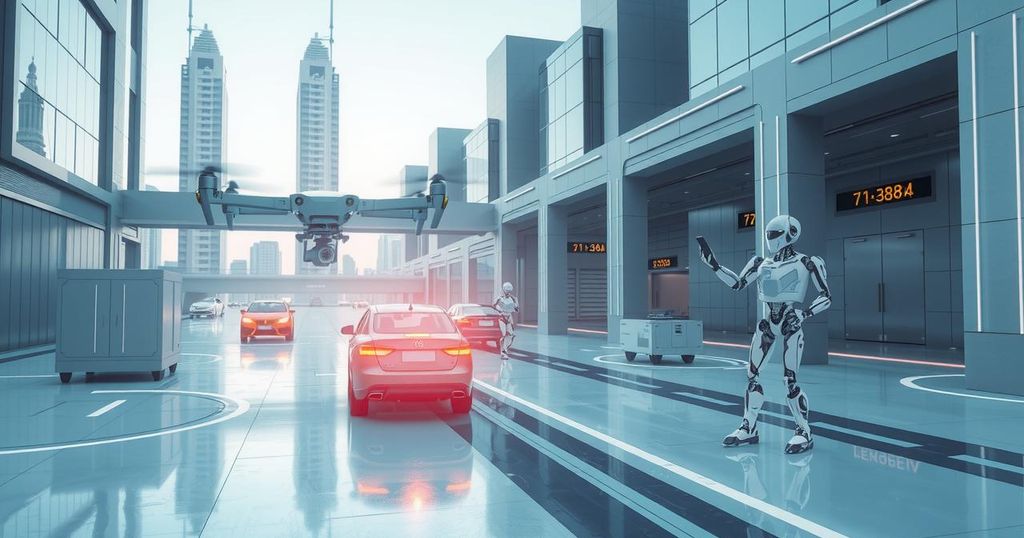AI Agents: How Tech Is Driving Autonomous Intelligence
- AI agents are changing how technology operates autonomously.
- Computer-Using Agents can manage tasks like booking restaurants.
- AI agents are becoming a competitive battleground for companies.
- The World Economic Forum predicts job transformation by 2030.
- Balancing AI efficiency with human oversight is crucial.
Defining AI Agents: The Future of Autonomy
The surge of AI agents is reshaping our tech landscape in profound ways. These clever computer programs, or agentic AI, are designed to operate autonomously, enabling crucial decisions without needing a guiding hand from humans. They can analyze data, solve problems and even traverse tasks that were once solely in the human domain, marking a significant leap in what artificial intelligence is capable of achieving.
The Evolution and Significance of Modern AI Agents
One key distinction between AI agents and ordinary chatbots lies in their operational capacity: AI chatbots interact in response to user prompts, doing their best to answer questions. But today’s AI agents are out there, working quietly in the background, diligently completing tasks and orchestrating activities between different applications without disrupting your workflow. They’re not just a fad – they have become a competitive and exciting frontier where tech giants tussle for dominance.
Exploring the Various Forms of AI Agents
As we consider how agentic AI can improve our lives, we see various categories of AI agents coming to light. Take Computer-Using Agents (CUAs), for instance; they can book a restaurant or complete online transactions swiftly and seamlessly, mimicking human behavior in navigating the digital realm. Recently, OpenAI introduced a CUA named Operator, which is designed to take on intricate tasks while blending multimodal reasoning with automation. Then there are Multi-Agent Systems, which harness several AI agents to work in sync or even shake things up by competing for the best solutions. Take Anthropic’s new Claude agents, for example, which are reshaping research by working in concert to scour information more efficiently than a single agent ever could, replicating the way humans naturally seek knowledge.
Navigating AI Agents: Opportunities and Risks
Lastly, Hybrid Agents marry the efficiency of AI with the wisdom of human oversight. Microsoft’s Copilot typifies this collaboration, lending a helping hand while ensuring human judgment remains part of the equation. This balance is particularly crucial, especially when AI agents are involved in high-stakes decision-making. Repeated concerns about human rights, privacy and safety arise from such independent operations, particularly if AI’s ‘hallucinations’ lead to misinformation, inadvertent bias or misinterpretations due to ambiguous commands. The World Economic Forum emphasized that careful oversight, thorough testing, and ongoing research are critical for understanding AI agents before they’re fully unleashed.
The Future Job Landscape with AI Agents
As we stand on the brink of this AI revolution, the World Economic Forum suggests we’re about to see a massive job reshuffle in the coming years. Their January report forecasts AI could eliminate about 92 million jobs by 2030, while also giving birth to an additional 170 million new opportunities in the workforce. One promising new role could emerge for AI communicators, professionals who’ll pave the way for smoother interactions between humans and AI systems, ensuring that new technologies remain ethical and beneficial to society as they evolve.
Final Thoughts on the Promise and Peril of AI Agents
In conclusion, the advancements we see with AI agents mark an important chapter in the ever-evolving narrative of technology. With great power comes even greater responsibility, especially as the implications for human rights and safety can’t be overlooked. The potential downsides need stringent oversight and regulations. As we delve deeper into the possibilities of AI agents, it’s evident that while they present fantastic opportunities, they also challenge us to tread carefully on this new terrain. Navigating these changes thoughtfully will be paramount to harnessing the benefits of AI while minimizing its risks.
In essence, the rise of AI agents is set to transform our workplaces and daily lives. While they promise to streamline processes and create new jobs, we must also contend with associated risks. Staying vigilant in managing their impacts will be crucial for our society as technology continues to evolve.




Post Comment